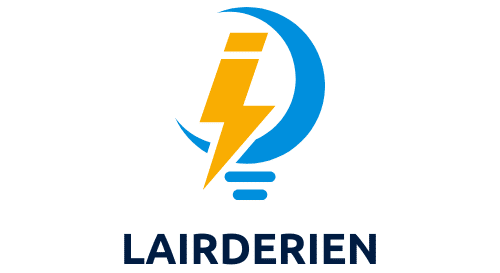In an era where digital devices have become ubiquitous, addiction to electronic media is a growing concern for parents. The social development of children and teens is at stake as screen time replaces human interaction. Here’s where the concept of a digital detox camp comes into play. These camps provide a refuge from the digital world and foster real-world social skills among campers. Let’s delve deeper into the effects of these camps on the social skills development of adolescents.
Disconnect to Reconnect: Understanding the Concept of Digital Detox Camps
The advent of the internet and electronic devices has transformed the way we communicate, learn, and entertain ourselves. Today’s children and teens, often referred to as ‘digital natives’, are growing up in a world densely populated with screens. Schools have integrated technology into their curriculums, and social media is a popular platform for interpersonal communication among teens. However, excessive screen time can cause internet addiction and hamper critical social skills development.
Cela peut vous intéresser : How Does Indoor Vertical Farming Ensure Nutritional Sufficiency in Urban Food Deserts?
A digital detox camp is a summer program designed for children and teens to break free from their electronic devices and spend quality time engaging in outdoor activities, socializing with peers, and honing their interpersonal skills. The focus of these camps is to provide a wholesome, tech-free environment that fosters improved social interactions and personal growth.
The Impact of Digital Addiction on Social Skills Development
Digital addiction is a real concern for today’s youth. The American Academy of Pediatrics has warned about the potential dangers of excessive media use, including negative effects on children’s health, academic performance, and social development. A report by the Kaiser Family Foundation found that children and teens spend an average of seven hours a day on entertainment media, including TV, computers, phones, and other electronic devices.
Avez-vous vu cela : Can a High-Intensity Interval Training (HIIT) Program Improve Heart Health in Diabetics?
This heavy reliance on digital media can stunt the social skills of children and teens. Overuse of online platforms can result in decreased face-to-face communication, a critical component of social skills development. These skills, such as empathy, active listening, and non-verbal communication, are essential for building strong relationships and succeeding in professional environments. When children spend most of their time interacting with screens rather than people, they may miss out on key opportunities to learn and practice these skills.
How Digital Detox Camps Encourage Social Skills Development
While the internet and electronic devices have their benefits, a balance is needed to ensure children and teens develop well-rounded skills. Digital detox camps offer a solution by providing an environment where kids can disconnect from their screens and engage in real-world interactions.
At a digital detox camp, campers participate in a variety of activities that encourage teamwork, communication, and leadership. These activities may include team sports, group projects, and even performing arts. Through these experiences, kids get the chance to practice and develop vital social skills.
Moreover, by unplugging from digital distractions, kids have the opportunity to spend more time exploring their interests, cultivating new hobbies, and building relationships. All of these experiences contribute to their overall social development.
The Role of Parents and Schools in Encouraging Digital Detox
While digital detox camps play a crucial role in mitigating screen addiction and promoting social skills, parents and schools also have an important part to play. Parents can set a positive example by limiting their own screen time, setting boundaries for device use, and encouraging outdoor play and social interaction.
Schools, on the other hand, can integrate digital detox strategies into their programs. Schools can encourage students to take regular technology breaks and facilitate more hands-on, collaborative learning activities. Furthermore, educators can discuss the benefits of a balanced digital diet and teach students about the potential negative effects of excessive screen time.
The Long-Term Benefits of Digital Detox Camp Participation
Digital detox camps do more than just reduce screen time; they provide a foundation for long-term social skills development. The benefits of these camps extend beyond the summer and can have a significant impact on children’s and teens’ personal and academic lives.
By participating in a digital detox camp, adolescents can see improvements in their face-to-face communication skills, ability to form meaningful relationships, empathetic understanding, problem-solving abilities, and leadership qualities. The experience of being unplugged also enables them to understand the value of real-world experiences over screen-based interactions.
Additionally, the digital break can help rewire the brain to reduce dependency on electronic devices, thereby promoting healthier digital habits. This balanced approach to technology use will not only positively impact adolescents’ social skills development but also their overall well-being and quality of life.
Building Resilience and Mental Health through Digital Detox Camps
Alongside the obvious social benefits from the experience, the participation in a digital detox camp has shown to have significant positive impacts on the mental health of children and adolescents. The increasing usage of electronic devices has been linked with several mental health issues among the young generation, including anxiety, depression, and low self-esteem.
In the world of constant connectivity, many young people feel the pressure of staying up-to-date with the latest trends on social media. They often compare their lives with those of their peers, leading to feelings of inadequacy and low self-esteem. The pervasive addiction to video games and other digital media also contributes to higher levels of stress and anxiety.
According to a study published on Google Scholar, digital detox camps, like Reset Summer Camp founded by Michael Jacobus, provide a structured environment that helps in reducing screen addiction, thereby improving the mental health of participants. The study conducted a pre-test and post-test on a control group of adolescents who attended the summer camp. The results showed a significant decrease in scores on the Internet Addiction Scale after the camp, indicating reduced reliance on electronic screens.
Furthermore, these camps provide a variety of activities aimed at building resilience among campers. From rock climbing to team sports, these activities challenge the children and teens, teaching them to navigate through difficulties, work in teams, and develop problem-solving skills. These are not only essential life skills but also significant factors in promoting mental health.
Conclusion: Digital Detox Camps as a Path to Balanced Digital Consumption
In conclusion, digital detox camps offer a well-rounded approach towards handling the digital dilemma that today’s adolescents face. By encouraging reduced screen time and promoting real-life experiences, these camps play a substantial role in the social skills development and mental health improvement of children and adolescents.
However, it’s important to remember that the responsibility does not solely lie with these camps. Parents and schools play a critical part in maintaining the balance of digital media consumption. The experience of a summer camp must be reinforced at home and school, making digital detox a part of everyday life.
Digital detox camps are indeed a step towards mitigating the negative effects of screen addiction. Still, they need to be complemented by an ongoing effort to encourage healthier digital habits at home and school. It is about not completely eliminating the use of electronic devices, but learning to use them in a balanced and responsible manner.
In a digital world, it may seem challenging for parents and educators to keep children away from screens. However, with the right measures and support structures like digital detox camps, we can guide our children towards better digital practices and help them develop essential social skills, ensuring their overall well-being and quality of life.






